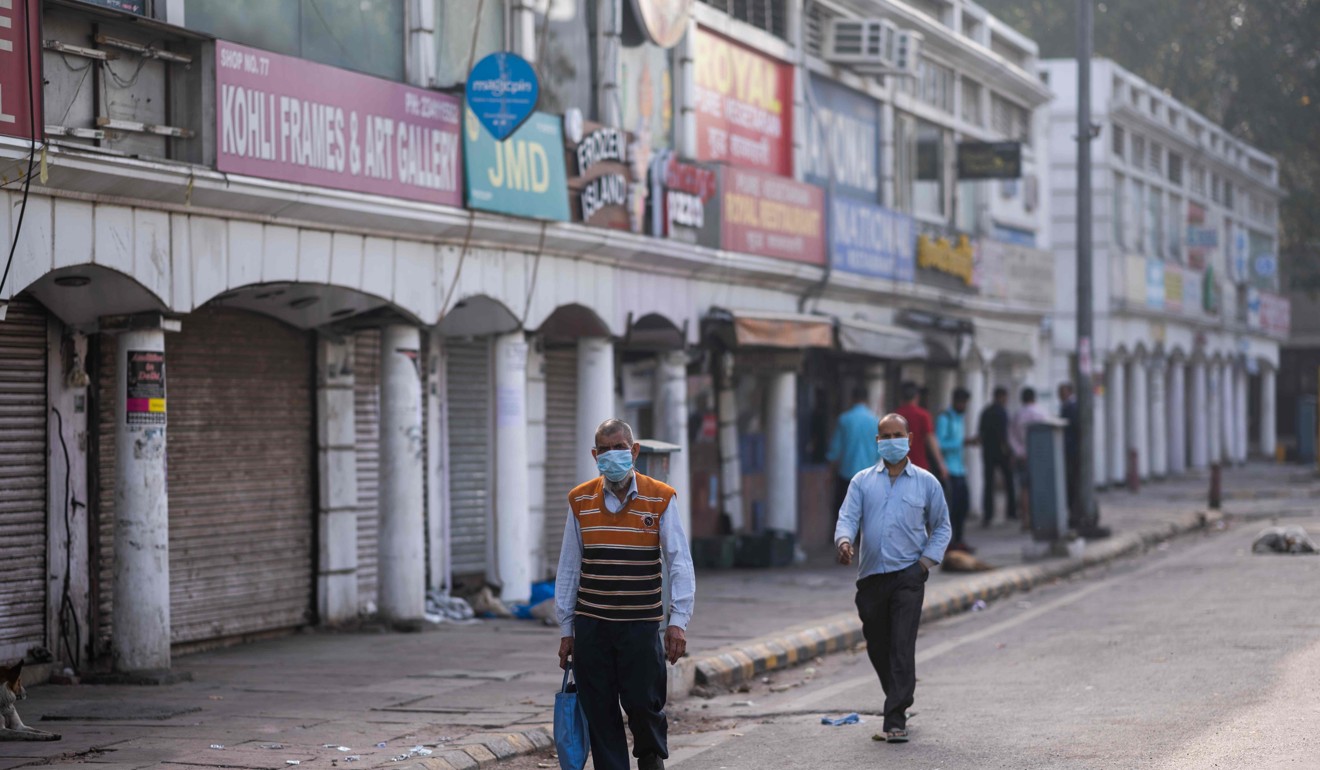
Netflix, yoga: how Delhi’s first coronavirus patient beat quarantine boredom
- Eighth and final part in a series exploring the different experiences of Covid-19 survivors from around the world
- Rohit Datta assumed he had the flu when he returned from a business tour of Italy and Hungary
It seemed no stranger than the flu to Rohit Datta when, suffering a fever and throat infection, he visited his family doctor in Delhi at the end of February following a whirlwind business tour of Italy and Hungary.
“I slept for 16 hours after I landed in Delhi, which never happens. I thought it was jet lag,” said the businessman, 45, who runs a firm that makes textiles for footwear and employs 25 staff.

As of Tuesday morning the country had reported 482 coronavirus cases and nine deaths, though many experts fear the true scale of the problem may be far greater given India’s low rate of testing. India has conducted almost 21,000 tests, or roughly 15 tests per million head of population. This pales in comparison to 310 tests per million people in the United States – which itself is criticised for restrictive methods – or more than 6,000 tests per million in South Korea.
Recalling his initial days in quarantine at Delhi’s Safdarjung Hospital, Datta said the overwhelming guilt that he could have transmitted the virus unknowingly to his closest family members and friends troubled him more than the infection itself.
Coronavirus: India’s worst-case scenario is two in 10 people infected
“The first days were introspective and I became philosophical. I became ashamed thinking that God wanted to take me back quite soon in this life,” Datta told This Week in Asia in an interview sprinkled with frequent coughs.
“I couldn’t stop thinking about how many people, my family and dearest friends, I could have infected without my knowledge.”

Soon after Datta had tested positive for the virus, more than 50 people who had come into contact with him, including immediate family, friends and colleagues, were traced and tested.
Relief came when his immediate family members tested negative. “We men don’t cry usually. I immediately broke down when I saw my family members’ results.”
However, six of his relatives, some of whom had travelled with him to Europe, tested positive. All have since been released from hospital.
LIFE IN QUARANTINE
A routine of phone calls with family, Netflix, books, yoga and breathing exercises kept Datta busy in hospital during his 15-day quarantine period. He is now in self-imposed isolation at his home until the end of March.
“The last few days [of quarantine] have become more of a routine and that happens even if you’re in jail. I never would have imagined I would have to wash my clothes to pass the time. Never have I washed my clothes in my life. But I wanted to engage in some kind of activity and I could spend 30 minutes every day washing my clothes, so it was helpful.”
The country’s Health Minister Harsh Vardhan contacted Datta via a video link to wish him a happy Holi, India’s festival of colours. The minister assured him the authorities were doing their best to implement safety measures.

“I don’t know what lesson we need to learn from this. My brothers-in-law and I kept pondering where we got the infections from. Whether it was a metro or taxi or a restaurant, we really don’t know. We attended the world’s biggest trade fair for the shoe industry in Europe and we could have been infected there as well.”
Datta urged anyone who thought they might be infected to get tested. He noted India’s recent lockdowns and approved of the measure.
“When I was in hospital, I was firmly thinking they should lock down the entire country if they have to, to contain the spread. It should be done.”
This article is one in a series exploring the experiences of recovered Covid-19 patients around the world
Purchase the China AI Report 2020 brought to you by SCMP Research and enjoy a 20% discount (original price US$400). This 60-page all new intelligence report gives you first-hand insights and analysis into the latest industry developments and intelligence about China AI. Get exclusive access to our webinars for continuous learning, and interact with China AI executives in live Q&A. Offer valid until 31 March 2020.











